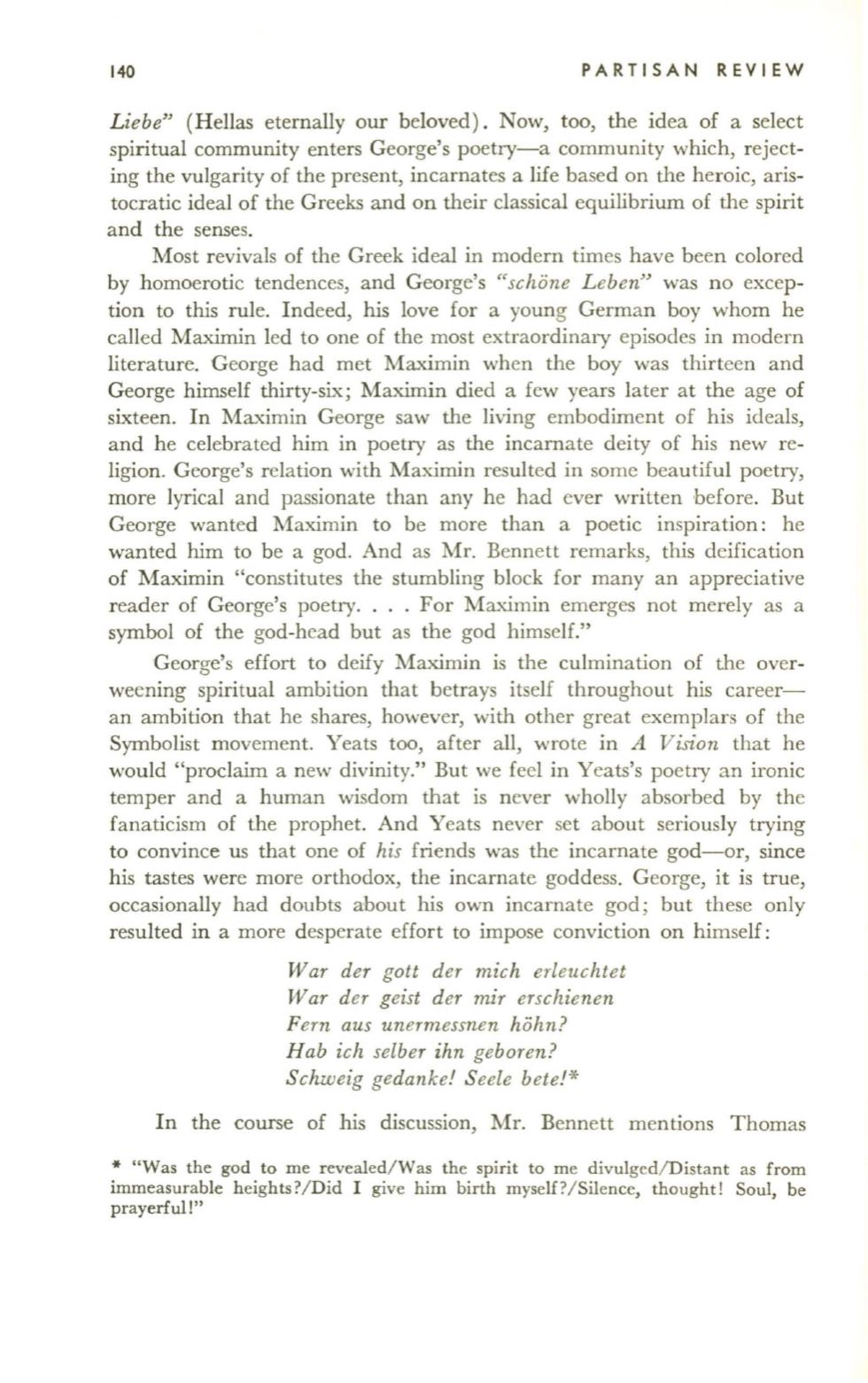
140
PA RT ISAN REV I EW
L iebe"
(H ellas eternally our beloved) . Now, too, the idea of a select
spiritual community enters George's poetry-a community which, reject–
ing the vulgarity of the present, incarnates a life based on the heroic, aris–
tocratic ideal of the Greeks and on their classical equilibrium of the spirit
and the senses.
Most revivals of the Greek ideal in modern times have been colored
by homoerotic tendences, and George's
«schone Leben"
was no excep–
tion to this rule. Indeed, his love for a young German boy whom he
called Maximin led to one of the most extraordinary episodes in modern
literature. George had met Maximin when the boy was thirteen and
George himself thirty-six; Maximin died a few years later at the age of
sixteen. In Maximin George saw the living embodiment of his ideals,
and he celebrated him in poetry as the incarnate deity of his new re–
ligion. George's relation with Maximin resulted in some beautiful poetry,
more lyrical and passionate than any he had ever written before. But
George wanted Maximin to be more than a poetic inspiration: he
wanted him to be a god. And as Mr. Bennett remarks, this deification
of Maximin "constitutes the stumbling block for many an appreCIative
reader of George's poetry. . .. For Maximin emerges not merely as a
symbol of the god-head but as the god himself."
George's effort to deify Maximin is the culmination of the over–
weening spiritual ambition that betrays itself throughout his career–
an ambition that he shares, however, with other great exemplars of the
Symbolist movement. Yeats too, after all, wrote in
A Vision
that he
would "proclaim a new divinity." But we feel in Yeats's poetry an ironic
temper and a human wisdom that is never wholly absorbed by the
fanaticism of the prophet. And Yeats never set about seriously trying
to convince us that one of
his
friends was the incarnate god-or, since
his tastes were more orthodox, the incarnate goddess. George, it is true,
occasionally had doubts a:bout his own incarnate god; but these only
resulted in a more desperate effort to impose conviction on himself:
War der gott der mich erieuchtet
War der geist der mir erschienen
Fern aus unermessnen hohn?
Hab ich seiber ihn geboren?
Schweig gedanke! Seeie bete!*
I n the course of his discussion, Mr. Bennett mentions Thomas
*
"Was the god to me revealed/Was the spirit to me divulged/Distant as from
immeasurable heights?/ Did I give him birth myself?/Silence, thought! Soul, be
prayerful
!"


